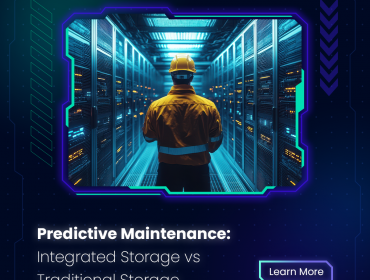Technology is shaping the healthcare industry drastically and with new age technology coming the process driven system of the healthcare industry is much more efficient and robust. Technologies such as digital and cloud solutions have opened numerous possibilities, there remains tremendous concern with some of the data security and compliance and the concerns that come along with them. At a time when health care breaches are worse than credit card and cyber security breaches, health care organizations tend to tread with caution.
Data containers have been proved very useful and are gaining traction as a solution to execute and manage applications effectively and safely. In a research undertaken by Gartner in 2020, it estimated that over 50% of enterprise workloads will run on data containers by 2020, up from less than 20% today. Such containers help in virtualizing the operating systems, enabling various operations to run in isolated environments. This makes it easy to move, modify and deploy applications as other applications aren’t affected. Though data containers have existed for many years, having a fully managed way to deploy containers in the cloud, specifically with the ability to transmit Protected Health Information (PHI), is still in a nascent stage.
That’s when there is a need for Kubernetes, being an open-source network, it gives system administrators more control on the environment and automates various processes. General approach that can be undertaken is to pack different service levels that further create applications into separate containers. Users can then use those data containers by deploying them in clusters of machines, be it virtual or physical. With the ability to automate application testing and deployment, health care organizations can reduce time to innovate and offer more transparency into production pipelines.
There are multiple ways Kubernetes can benefit the healthcare sector:
1. Security and Safety – Using the effective combination of data container technology and Kubernetes many health organisations have successfully surpassed the traditional security challenges like operational level glitches and virus attacks. Instead, whenever they deploy a new version of their application, they deactivate the previous cluster and redeploy the new clusters. This helps health organisations to faster compute the data and not have to employ system administrators that are making sure security patches are run, operating systems aren’t out of date and that there are no malware attacks.
2. Continuity – When there is a need for the application to be updated, users simply duplicate the data container and create a new identity tag for it. This deactivates the old container, but it remains in existence, which comes as an emergency resource if the user needs to refer to a record of what was done or needs to roll back to the older version if something goes wrong. When a change like this takes place, system ineffectiveness a huge trouble area in the healthcare space is eliminated.
3. Cost effectiveness – With Kubernetes, operating systems and software licenses are not available in the public cloud. Since deploying a new container shuts off the old one without any downtime, here the data environment isn’t expanding unnecessarily. And while considering the light weight of the containers are in comparison to individual virtual machines with an operating system for each environment, the cost savings can be huge, especially in the healthcare sector.
4. Scalability – Kubernetes allows users to set rules for increasing the efficiency of the applications based on demand. By balancing incoming loads better, organizations can manage their physical resources. It also eliminates the need for manual intervention entirely, likewise boosting productive output of healthcare and IT teams.
5. Building a Self-correcting Environment – Kubernetes are programmed in such a way that they can self-correct and reposition themselves. They continuously ensure that the requirement matches the current and the desired state. Kubernetes create clones of containers, if one is faulty. Kubernetes will automatically replace it and transfer the application to a new container.
Dealing with application failure is a huge pain point for healthcare IT professionals. When this happens, they have to manually log in to resolve the issue, restart services and troubleshoot the database. These processes consume a great deal of time and resources, potentially impacting the quality of patient care, especially such technologies are a must amidst the ongoing pandemic.
Let us tell you more about how Tyrone Container Platform can save your organization time and money while keeping you agile, secure, and supported!
Write to us: info@tyronesystems.com












